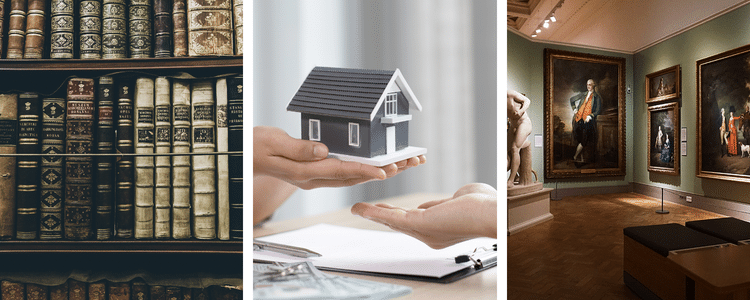Types of Legacy Gift

In addition to monetary gifts, the University is delighted to accept many other types of gifts in your will. Have you considered donating any of the items listed below?
If you intend to donate a specific item, it would be helpful if you would please inform the Legacies Officer, who will liaise with colleagues in the relevant area of the University that would benefit. In addition to any necessary checking of the practicalities of receiving the gift, it can be useful - and can enrich the gift - if we know the story behind it and what it means to you.
Types of gift gratefully accepted
Investments
Stocks and shares and other investments can be donated and it could be the case that there are capital gains tax benefits to them being signed straight over to the University. That makes this type of gift highly tax efficient and very simple to administer.
Pension
Durham University can be nominated as a recipient of your Self Invested Personal Pension.
Property
The gift of property is often valuable and welcomed by the University. If you wish to allow your spouse or loved ones to live in the property but would like it to go to the University when they no longer need to live there, your solicitor will be able to discuss the benefits of making a reversionary legacy gift.
Belongings (chattels)
Artwork, precious books and documents of significant value relevant to our collections can be donated to the University Library, its Special Collections and Archives, the Oriental Museum, the Museum of Archaeology, and the Durham University Western Art Collection. We have a Gift Policy which details the circumstances under which we can accept donations to the University Library. Musical instruments and furniture could also be welcome, though sometimes space restrictions and transport need to be considered.
Please contact Louise McLaren, the Senior Development Manager (Legacies and Planned Giving), to discuss gifts of chattels on 0191 334 6313 or email louise.mclaren@durham.ac.uk.
Legacy gifts the University cannot accept
Protected characteristics
Among the types of gifts the University cannot accept are donations which limit support by discriminating against people who share one or more specific protected characteristics. This includes, amongst others, gender, nationality and religion.
Whilst the University appreciates the sentiment of donors wishing to support a specific group close to their hearts, under the Equality Act 2010, these restrictions are unlawful except under certain circumstances. There may be exceptions if the group is under-represented at the University at the time the gift is received. For many areas of our work, it is difficult to predict this.
At the time the University is informed of a gift from a deceased estate if the gift contains any limitation to its application which is unlawful, unfortunately, the University might be obliged to turn the gift down.
Narrow restrictions
Similarly, if a legacy gift is narrowly restricted to a certain area of the University’s work, there is a risk that the area of work will no longer be active by the time the will comes into effect. If the gift cannot be used for the specific intended purpose and the will contains no guidance in the case that the preferred direction cannot be satisfied, we might not be able to accept the gift.
Items which fall out with the Library Gift Policy
For practical reasons, the University Library's Gift Policy is strictly applied.
If you are concerned at all about a gift which is already in your will or about your plans to include a gift, please speak to a qualified legal professional. Alternatively, you could contact the Senior Development Manager (Legacies and Planned Giving) on +44 (0) 191 334 6313 and she will check whether we would be able to accept the gift if it were received today. However, she would not be able to predict a future decision or suggest alternative wording and would ask you to seek independent advice.
What could I donate?
We are pleased to accept gifts of any value. When considering how to direct your legacy, some people find it helpful to consider the likely value of their gift and what could be achieved with it.


/prod01/prodbucket01/media/durham-university/alumni-/page-header-banners/Donations.png)